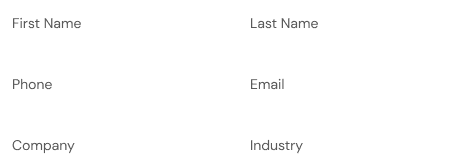Due to the pandemic going on for more than a year, the economic status of most countries worldwide has visibly dwindled. Around half of the world’s population was in lockdown, thousands of lives are lost, and people are experiencing the effects of isolation physically, mentally, and socially. It is no wonder how the pandemic affected the workplace globally, and some people believe that it will be a permanent shift in how companies operate.
To understand it better, let’s discuss how Covid-19 changed the global economy and workplace and how it will affect the future.
The impact of the pandemic on the global economy
Despite the efforts of the government across different countries to counter the economic downturn, it is still undeniable how the pandemic outbreak affected our economy. Last 2020, the Global Economic Prospects describe the 5.2% contraction in the global GDP, which is the worst global recession in decades.
Both developed countries and emerging economies have been affected. Some of the affected quarters include the healthcare system, tourism and trade, capital flows, and dwindling remittances. To counter the recession, the developing markets resorted to loans from the World Bank, resulting in mounting debts.
However, a large portion of entrepreneurs still believes that everything will change by the end of 2021. They are optimistic that with the emergence of vaccines worldwide, the economies’ prospects will significantly improve in the next few months. People will get out of their houses, and the businesses will function as before again.
But, one thing will remain unchanged: the impact, the many lives, and money lost due to the pandemic and the lessons people learned from it. It will forever change how people view the world and the extent of their preparation for unforeseen issues in the future.
How the remote workplace changed globally

As the pandemic affects the economy and the quality of people’s lives, it also changed the global workplace to a great extent. Many people have lost their jobs due to cost-saving measures, while some were forced to stay at home for work.
While most were skeptical about the remote workplace setup, companies all over the world learned to adapt right away. Businesses were also able to adjust their workplace to make their remote employees feel comfortable working amidst the pandemic.
Here are some of the changes in the workplace globally:
● Remote Work
The pandemic has forced almost 88% of organizations worldwide to work remotely for health and safety reasons. Although there were some challenges in this pivotal setup, companies around the globe have realized the benefits of remote working. Some people even speculate that remote working is here to stay.
● Remote Workplace
Today, most companies found out that they don’t need a physical office space as much to cater to the needs of their remote employees anymore. The government discourages mass meetings which means that organizations only need their computers, digital tools, and an internet connection to work.
● Technological upgrades
Now that remote employees and executives can’t meet physically, it is essential to implement tech upgrades for smoother work processes and uninterrupted communications. For example, many companies provide or finance high-spec computers, headphones, and internet connections for their workers.
● Corporate Cybersecurity
Every sensitive document and meeting is expected to be held online as physical discussions are still highly discouraged. However, the internet is a dangerous place for transporting information due to competent hackers worldwide.
To prevent leakages and instill the corporations’ privacy, they invest in top-class corporate cybersecurity and ensure their remote employees are trained and know about them. For example, some businesses use encryptions for their files and auto deletes them at a particular time.
● Diversified remote workforce
As companies learn the cost benefits of remote work and the possibilities of outsourcing international talents, most of them have started to promote a diversified workforce. More and more companies realize that they are not only limited to a talent pool based on geography but that they can expand their reach beyond borders. There are different ways to outsource remote employees from other countries. Some hire freelancers online, while others engage with outsourcing companies such as EORs or BPOs to help them hire talents overseas.

The better normal of managing remote teams
According to Upwork, 73% of corporate teams will hire remote workers by 2028. This significant change was heightened by the forced adaptation of remote workplaces in the work-from-home setup. Some people don’t even know if the “past” normal will be back or if it will ever be back even after the pandemic.
A study from Slack states that over 72% of workers who have experienced the WFH setup would like to retain their hybrid remote office rather than going back to the old ways. It provides more flexibility and freedom for the remote employees, and they have a better work and life balance.
Aside from that, employers also realized the cost-efficient benefits of working remotely for their business. First of all, they do not have to spend on renting or maintaining a corporate office, and they can even diversify their workforce better.
The only challenge is to ensure a safe, cost-effective, and efficient way to hire overseas without spending a lot of time and money understanding the international labor laws and the extensive hiring process. Thus, most companies partner with an employer of record or EOR services company to lift the burden of legalizing their outsourcing and help manage administrative HR tasks, payroll, and employee benefits.
Takeaways
Due to the pivotal role of the global pandemic in the economy and the workforce, people all over the world are taking great strides in adapting to the changes in the workplace. The need to rapidly shift to a digital and remote-first workplace has enabled companies and employees to realize the convenience of a work-from-home setup and the benefits of outsourcing foreign talents. As more and more people are building trust and interest in expanding their team beyond borders, now is the perfect time to get ahead of the game and future-proof your operations through outsourcing.
We can help you discover a whole new world of skilled, hard-working, and friendly employees with our Employer of Record services designed to simplify outsourcing for your business.
Find out more about what an Employer of Record can do for you by checking out our Services. You may also contact us at Remotify, and we’ll help you thrive in a remote-first work environment.
About Remotify
Remotify is your next-generation solution to growing your team remotely and cost-effectively in the Philippines.
Through our Employer of Record services, Remotify will employ and payroll your workers in the Philippines and do the heavy lifting for you. We will take care of local HR, compliance, attendance tracking, payroll, and reporting so you can focus on what is most important: growing your business.
This means you can quickly and securely hire employees in the Philippines, attracting top talents and keeping them engaged through the process. At the same time, you avoid the overhead of establishing your own entity.
From complex local tax and labor laws to in-country capital requirements and compliant HR management, payroll, and benefits disbursement, getting started in a new country to tap on its low cost and great talents can be a time-consuming endeavour. But with the right partner, it doesn’t have to be. Remotify is here to keep things simple for you.
Jump straight to a key chapter
Spending Too
Much Time
Onboarding?
your remote hiring in the
Philippines, excellently.
Say Goodbye to High Costs!
Request Your Free Consultation Today andSave a Massive 70% on Your Workforce!

Ready to thrive in a remote-first work environment?



